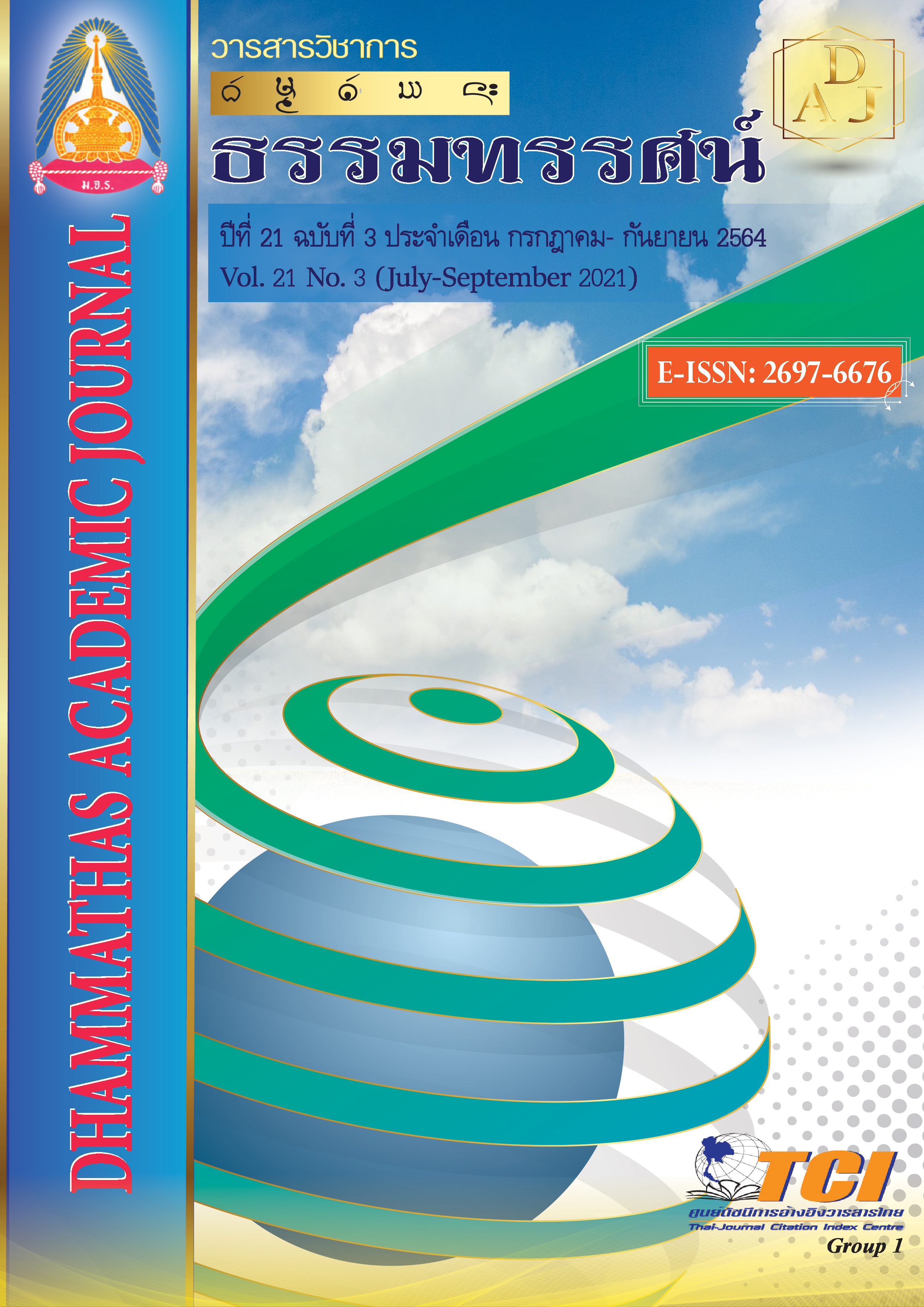Join Forces to Improve the 21st Century Teaching Skills: A Case of Samlium Municipal School
Main Article Content
Abstract
This research aimed to improve the quality of students by joining forces to develop 21st century teaching skills in case of Samlium Municipal School. The method used in the Philosophy phenomenon. It focuses on descriptive studies to understand what it is and what it means., and there were ten teachers voluntarily participating. The study had been done in two semesters of the academic year 2020. Research tools were: 1) Observation form 2) In-depth interview form, Group interview form, 3) Check or Record form, and 4) Evaluation for development expectations form. The three expectations from the development outcomes were: 1) the improvement under the identified indicators: a) teacher performance, b) organizing teaching activities and c) the students characteristic, 2) the researcher, the research participants, and the entire teaching staff learned from practice, and 3) the knowledge, which had been obtained from the practice as a foundation theory in this school.
The results revealed that: the average means of teacher performance in developing 21st century teaching skills, teaching activities of teachers in developing teaching skills in the 21st century, and student characteristics in developing 21st century teaching skills after the 1st and after the 2nd cycles were higher than before the operation. Secondly, the researcher and co-investigator learned from the practice of many issues as follows: Awareness of the importance of participation in work reflection, and experience Lastly, the knowledge: Expected change, Driving factors, Resistance to change and overcoming resistance drive change. The details of each issue can be used as a model for the students in developing 21st century teaching skills. Moreover, the concept can be applied to other new conceptual developments.
Article Details
References
ชัยวัฒน์ สุทธิรัตน์. (2558). 80 นวัตกรรมการจัดการเรียนรู้ที่เน้นผู้เรียนเป็นสำคัญ. (พิมพ์ครั้งที่ 6). นนทบุรี: พี บาลานซ์ดีไซด์แอนปริ้นติ้ง.
ทวีศักดิ์ จินดานุรักษ์. (2560). ครูและนักเรียนในยุคการศึกษาไทย 4.0. วารสารอิเล็กทรอนิกส์การเรียนรู้ทางไกลเชิงนวัตกรรม, 7(2), 14-29.
วิโรจน์ สารรัตนะ และคณะ. (2561). ภาวะผู้นำสำหรับศตวรรษที่ 21. วารสารศึกษาศาสตร์ มหาวิทยาลัยนเรศวร, 20(1), 261-271.
วิโรจน์ สารรัตนะ. (2561). การวิจัยทางการบริหารการศึกษา: แนวคิดและแนวปฏิบัติ. (พิมพ์ครั้งที่ 4). กรุงเทพฯ: ทิพย์วิสุทธิ์.
สุทธิวรรณ ตันติรจนาวงศ์. (2560). ทิศทางการจัดการศึกษาในศตวรรษที่ 21. Veridian E-Journal, Silpakorn University (Humanities, Social Sciences and arts), 10(2), 2843-2854.
อดุลย์ วังศรีคูณ. (2557). การศึกษาไทยในศตวรรษที่ 21: ผลผลิตและแนวทางการพัฒนา. วารสารมนุษยศาสตร์และสังคมศาสตร์ บัณฑิตวิทยาลัย มหาวิทยาลัยราชภัฏพิบูลสงคราม, 8(1), 1-17.
Brannick, T., & Coghlan, D. (2007). In Defense of Being “Native”: The Case for Insider Academic Research. Organizational Research Methods, 10(1), 59-74.
James, E. A., Milenkiewicz, M. T., & Bucknam, A. (2008). Participatory action research for educational leadership: Using data-driven decision making to improve schools. Thousand Oaks, CA: Sage.
Lewin, K. (1943). Defining the 'Field at a Given Time'. Psychological Review, 50(3), 292-310.
Mills, G. E. (2007). Action research: A guide for the teacher researcher. Ohio: Prentice Hall Columbus.

